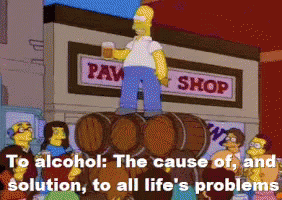Published
AI won't change the World, people will
Alright, I promised AI hot-takes on the tednet.org homepage, so let's give it a go: At best, AI is mostly a distraction, at worst it's another nail in the coffin that is the downfall of humanity. Whew! We're in for a ride.
First, I want to tackle the idea that AI will "save humanity." Save humanity from what? Climate Change? Seems counter-intuitive considering the pressure the industry adds on resource extraction and energy production. Or, perhaps save us from war? Yet, getting more efficient at targeting people to kill—while, evidently, being quite loose on oversight—isn't going to bring us peace. We're just perpetuating the arms race.
And, even if the enormous energy requirements of AI is the kick in the pants we need to unlock some breakthrough in production, there's an issue at the core of AI that is a hindrance to improving humanity: that we are viewing it as anything more than a tool and that we can give up our own authority and decision making to a machine. We, as humans, often get caught up in the hype of progress and new technology and forget that we are the source of creation. This is both a literal and spiritual statement. We are both the cause of, and solution, to all life's problems.

Technology doesn’t change us. We adapt to technology. Really, we are infinitely adaptable. Which is to say: our bodies and consciousness merges with the experiences we repeatedly provide them. So if we repeatedly expose ourselves to a new technology (smart phones, social media, memes, etc) then we will adapt to those experiences—for better or for worse. The point being: technology doesn't change us, we adapt to technology. The former puts us at the whim of external circumstance. The latter empowers us to be conscious of our own adaptations—our habits and conditioning.
The core of being human is creation. That is: we create. We imagine and then make that imagination a reality. It’s why being a human is so unfathomably incredible. We are the stewards of this earth and of this reality. We are our own authority. We can maintain autonomy, if we choose to do so. I believe there is a split here, that depends on how you view humanity: A. You view humanity as destructive, dangerous and inherently selfish to the detriment of others. B. You view humanity as creative, loving and inherently generous to others.
With Group A, you likely fear the irrationality of others, their broken logic, and more than anything, their unsubstantiated beliefs. Humanity is seen as chaotic and order must be maintained through external authority and control. In this view, AI can be an impartial, purely logical, objective judge of all human affairs. Thus, can save us. This view is based in fear and usually extends to believe we should trade in emotion and compassion for efficiency and increased productivity.
With Group B, you respect the divine integrity of every individual. You see humans an innately good and pure. That all negativity, destruction and conflict arises from conditioning that casts darkness on the true being of each person—creating internal discord. That if each person was able to tap into and act purely on their own inner authority, that all conflict would disappear from the world. This view is based in love.
"[..] there is a natural source of radiance and brilliance in this world—which is the innate wakefulness of human beings."—Chögyam Trungpa
As the power of our tools and technology reaches heights unlike anything we've seen in (remembered) history, it exemplifies the importance of returning to love. And, how this needs to happen at the individual level. Each of us, needs to tap into our innate goodness, to cast away our conditioning and fears, and instead honor, hone and act from each of our own inner authority's. Giving up our autonomy and our own authority to make decisions to an "objective" and unemotional AI will not save us. Honoring each of our own individual inner authority's and innate goodness will. It is crucial for each of us to take responsibility for our creativity and honor our individual inner authorities.
As for AI, it’s another tool in the toolbox. Wield it in weird and wacky ways. Just remember, it is not a replacement for your inner authority and decision making.
That's it. That's the AI hot-take. So, are you going to kick ChatGPT to the curb? Or, ask it all of your major life decisions? Like, if you should eat that ice-encrusted Hot Pocket that's been at the bottom of your freezer since who knows when?